Just this week we had our annual Proteus company meeting — something we’ve done every fall for many years. I believe it was the best one so far: great energy; lots of fun; useful conversations and clarifications; really good connections among all of us. But for me, the most wonderful thing was this: I didn’t make the arrangements; I didn’t manage getting everyone there; and I didn’t run most of the meeting.
My excellent team members did much of the heavy lifting, and I showed up with everyone else and participated.
My job as co-CEO of Proteus has changed dramatically over the past year or so, and I’m
very excited about it. The metaphor I’ve been using in describing the change: for 20+ years, I felt like I was running with a kite, trying to get it up in the air. Now, the wind has caught the kite, and my job consists of paying out the line, keeping the proper amount of tension on it so that the kite stays in the air and can go higher and higher.
The ‘wind’ is composed of a better-than-ever team of smart, well-intentioned, skilled people; better and better internal processes for doing our work; ever-more-clearly-developed and useful IP; and a wonderful momentum of satisfied and vocal clients who keep calling us back and referring us to others.
So even though I’ve had the same job on paper for 23 years, “Founding Partner and CEO” of Proteus is very different now than it was even a few years ago.
And I’m seeing that the most important way for me to make this shift is to talk less, listen more, and get very curious. In fact, I think that’s key to making any shift, but it’s especially important when something you think you know very well is shifting under you.
When we’re involved in learning something brand new to us, we tend to come in with a helpful “novice” mindset: e.g., “I don’t know know much about this; there’s a lot I need to find out.” That mindset moves us in the direction of listening and curiosity. Unfortunately, when it’s time to learn something in an area where we already think we’re experts (e.g., doing our job, running our company, raising our kids), we tend to be much less open and curious, much more focused on how it should be, on what we know (or think we do), and on telling others what we know and how it should be!
I suspect that, in today’s world, most people’s jobs change pretty significantly from one year to the next, and that no matter how long you’ve been in a particular job or company, it’s probably a good idea to come in every day with that learner’s mindset.
Michelangelo, arguably one of the most brilliant and productive people in Western history, had a stock response he used throughout his life whenever people complimented him on an achievement or an idea: he said, “Ancora imparo” — “I am still learning.”
If it’s good enough for Michelangelo, it’s good enough for me.

3 comments
tvansipe
October 15, 2013 at 5:21 pm
Caught By The Wind — How Our Jobs Are Changing http://t.co/MsQa09qGgM by @erikaandersen
trekkie329
October 15, 2013 at 6:21 pm
RT @tvansipe: Caught By The Wind — How Our Jobs Are Changing http://t.co/MsQa09qGgM by @erikaandersen
williamshaw09
October 15, 2013 at 8:28 pm
RT @tvansipe: Caught By The Wind — How Our Jobs Are Changing http://t.co/MsQa09qGgM by @erikaandersen